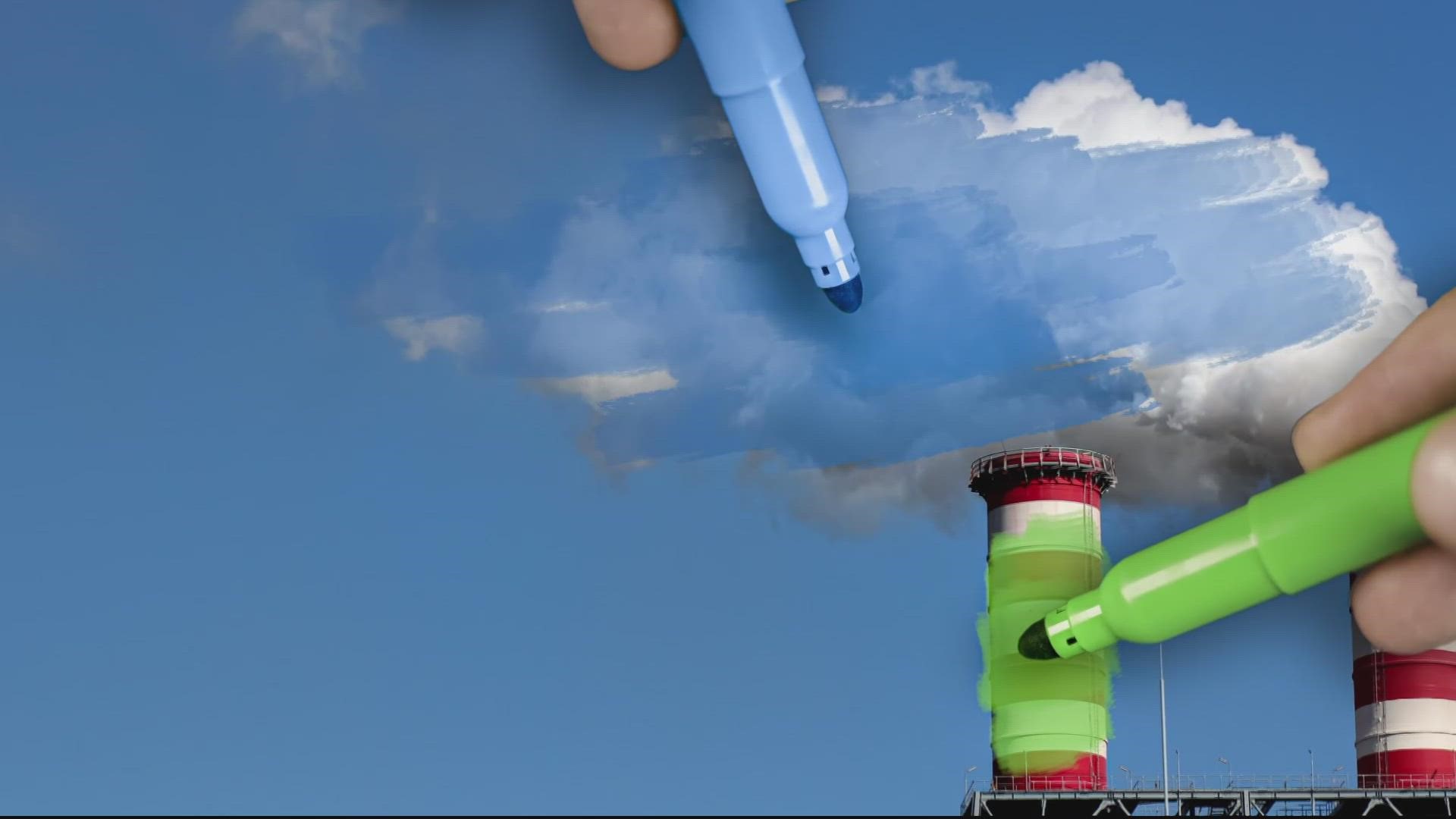WASHINGTON — With the new year well underway, you might have made the resolution to be more eco-friendly. But there is something to watch out for as you make your way through your new environmentally friendly journey: Greenwashing.
Greenwashing is when a company or product is advertised to be environmentally friendly but is not. The consumer is tricked into thinking they are purchasing a product that is better for the environment.
“Greenwashing is about lying to consumers. What it does is it means that they spend money, that they otherwise wouldn't have spent, because they believe something is being done when it's not being done,” said Dr. Ellis Jones, a professor at the College of Holy Cross who is an expert on the topic.
He continued by saying, “If you go in, you think the product is going to be green, you think the company is doing the right thing, you know, later on, you find out, or more likely you don't find out that, in fact, none of that is true. And you've just been sort of hoodwinked.”
Greenwashing has a myriad of harmful impacts ranging from overconsumption to cooperate distrust.
According to Dr. Jones, “What makes it harmful, I mean, at a very core level is that it's a distortion of what is actually happening in the world.”
So, what can we do to avoid greenwashing? Dr. Jones recommends looking for environmentally friendly labels.
“The only label that I would trust almost exclusively is something called B Corp. And this certification is very comprehensive, and it looks at the whole company, all of what they're doing social and environmental. That is, for me, the gold standard. So if consumers need one thing, that's the one thing.”
Conscious Consumerism! That’s what it’s all about! Taking time to research products and brands, before investing in them, to help the green initiative!
WATCH NEXT: Environment Matters: Birds, Bees & Butterfies

